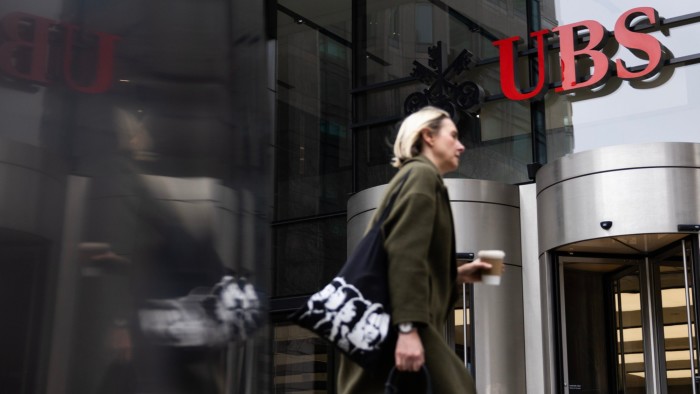Unlock the Editor’s Digest for free
Roula Khalaf, Editor of the FT, selects her favourite stories in this weekly newsletter.
UBS has made about 100 “goodwill payments” to Swiss customers after complaints about losses on foreign exchange derivatives that blew up in the wake of Donald Trump’s “liberation day” tariffs, as it seeks to draw a line under the episode at a time of heightened regulatory scrutiny.
The Swiss bank set up an internal task force to examine the complaints after some of its clients suffered heavy losses when the US dollar fell sharply following Trump’s announcement of blanket tariffs on April 2, alleging that they did not understand the risks involved.
UBS’s task force conducted a review of all clients utilising the product after receiving initial complaints, according to a person familiar with the bank’s processes.
The review found that some clients had outsized exposures in comparison with their assets and took action to remedy the positions, the person said.
Multiple people familiar with the complaints said that about 100 people involved had received the payments after the review.
The foreign exchange product at the centre of the complaints is not new but is tailored for professional and high-risk investors. In this case clients agreed to regularly exchange dollars for Swiss francs at a fixed rate, as long as the exchange rate stayed within a defined range.
However, if the rate moved outside that range — such as when the dollar suddenly dropped after Trump’s liberation day tariffs announcement — clients were obliged to continue trading under increasingly unfavourable conditions, incurring steep losses.
“These products effectively transfer risk from the bank to the client, who is left with minimal gain potential and substantial exposure to loss,” said Nicolas Ollivier, a lawyer at dispute specialist Lalive which is representing several retail and professional clients involved in the situation.
“Based on the documents reviewed, it appears the clients were not fully or clearly informed of these risks,” he added.
People familiar with the matter said the work of the UBS task force was drawing to a close, although it was still in active discussions with some clients who believed they were owed compensation.
The bank is also looking at a handful of its client advisers and whether they should have done more to communicate the risks involved in the products to clients, the people added.
Some clients who have lost money on the products but have not received a goodwill payment or compensation have filed criminal complaints in Zurich.
The complaints have been filed against unknown perpetrators for violations of the Unfair Competition Act and are in the preliminary review stage, the Zurich public prosecutor said. Swiss civil procedure does not have a discovery process like some other countries, meaning parties can use this route as a means to gather evidence.
The situation raises questions about risk controls and client protection at a time of heightened regulatory scrutiny for the Swiss bank, which is the world’s second-largest wealth manager.
Two of the clients who spoke to the Financial Times alleged aggressive selling of the product even when they expressed concern about the risks.
One client lost more than SFr3mn, according to their legal representative. Another client, who told UBS they had a medium appetite for risk, said their adviser at the bank only gave them specific risk documents to sign many months after the bank started the trade for them in 2023.
The second person said they had lost 15 per cent of their assets and asked the bank to exit the investment a few days after Trump’s liberation day, before the dollar dropped further causing even larger losses.
“I repeatedly expressed concerns about the product and said I did not understand it. They kept telling me not to worry and then they would just restructure it,” the person said.
UBS said: “We have completed a review of this matter and determined that a very small number of clients in a few locations in Switzerland experienced unexpected effects from the US tariff-related market volatility in April 2025. From the outset we have taken this matter seriously and have looked at each client case individually.”




